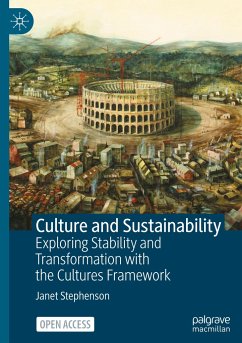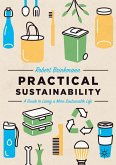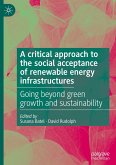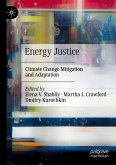This Open access book brings a cultural lens, and a distinctive analytical framework, to the problem of transitioning to a sustainable, low-carbon future.
The world faces a seemingly impossible hurdle - to radically alter long-established social, economic and technological systems in order to live within the biophysical limits of the globe, while ensuring a just and enduring transition. The overarching premise of this book is that this cannot be achieved without widespread cultural change. 'We need a change in culture' is often used rhetorically, but what does this really mean?
Stephenson starts by exploring culture's elusiveness, describing its divergent interpretations before identifying core features of culture that are common across most definitions. These characteristics form the core of the cultures framework, an extensively tested approach to studying the links between culture and sustainability outcomes. The framework makes culture an accessible concept which can be analytically applied to almost any sustainability problem. Using many examples from around the world, Stephenson illustrates how cultural stability, cultural flexibility and cultural transformation all have a part to play in the sustainability transition. She guides the reader in the use of the cultures framework for policy development and to underpin research undertaken by individuals or by multi-disciplinary teams.
Clearly and engagingly written, Culture and Sustainability is essential reading for academics, students, policy makers and indeed anyone interested in a sustainable future.
The world faces a seemingly impossible hurdle - to radically alter long-established social, economic and technological systems in order to live within the biophysical limits of the globe, while ensuring a just and enduring transition. The overarching premise of this book is that this cannot be achieved without widespread cultural change. 'We need a change in culture' is often used rhetorically, but what does this really mean?
Stephenson starts by exploring culture's elusiveness, describing its divergent interpretations before identifying core features of culture that are common across most definitions. These characteristics form the core of the cultures framework, an extensively tested approach to studying the links between culture and sustainability outcomes. The framework makes culture an accessible concept which can be analytically applied to almost any sustainability problem. Using many examples from around the world, Stephenson illustrates how cultural stability, cultural flexibility and cultural transformation all have a part to play in the sustainability transition. She guides the reader in the use of the cultures framework for policy development and to underpin research undertaken by individuals or by multi-disciplinary teams.
Clearly and engagingly written, Culture and Sustainability is essential reading for academics, students, policy makers and indeed anyone interested in a sustainable future.








